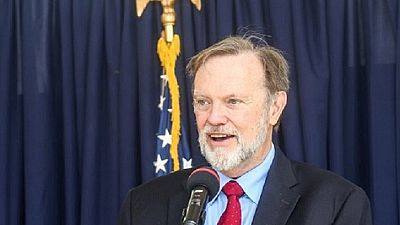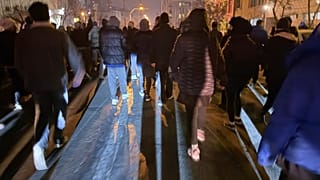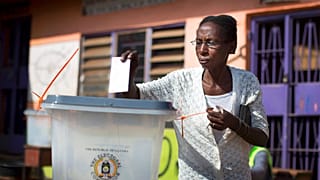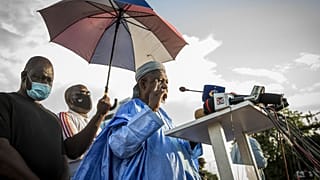Africa
The United States Department of State announced on Thursday that the Assistant Secretary for African Affairs, Tibor Nagy, was due to visit four African countries this month.
The diplomat will be in Central, East and southern Africa, the press statement noted. Cameroon, the Democratic Republic of Congo, DRC; Uganda and Rwanda will be his destinations.
“He will promote stronger business ties between the United States and Africa, engage Africa’s vibrant youth, strengthen partnerships that aim for greater peace and security, and reinforce the United States’ commitment to the people and nations of Africa,” the statement noted.
While in Kampala March 7–8, Assistant Secretary Nagy will meet with senior Ugandan government officials.
On March 9–11, he will discuss ways to create greater opportunities for American investors with representatives from the American business community in Kigali, in addition to meeting with senior Rwandan officials.
In the D.R.C. March 13–15, he will engage NGOs, civil society, and the new D.R.C. government on a range of issues to include strengthening regional stability, promoting good governance, combatting corruption, strengthening commercial ties, and supporting the response to the Ebola outbreak in the eastern D.R.C.
On March 17–18, Assistant Secretary Nagy will visit a U.S.-owned firm in Cameroon, discuss Cameroon’s role as a regional partner with government officials, and meet civil society.
But before arriving in Africa, he will be in Belgium and France where he is expected to discuss the U.S. shared objectives for Africa’s security, prosperity, and self-reliance with key partners and media in Europe.












02:24
Uganda's president urges people to vote in Thursday's general election
Go to video
Uganda's military deployed in national capital before presidential election
Go to video
US House passes 3-year AGOA extension but South Africa's inclusion is unclear
01:00
Pix of the Day January 13, 2026
02:12
Legendary boxer Muhammad Ali to be honoured with US postage stamp
01:10
Rwanda nominates former top diplomat for third term as Francophonie head